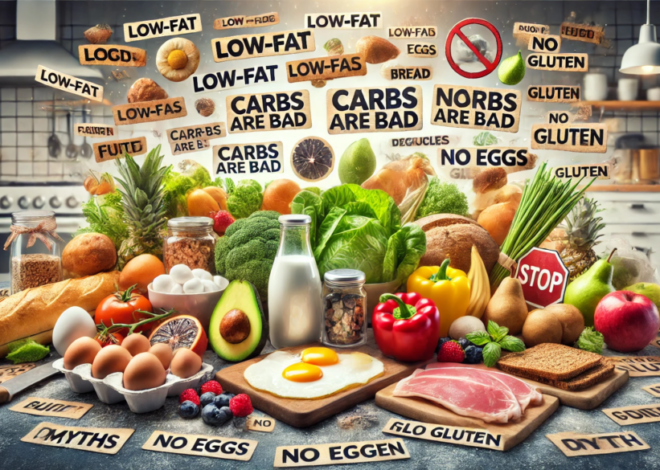
The Role of Zinc in Immune Support: Should You Supplement?
Zinc supplements are often hailed for their role in boosting immune support, with studies showing that adequate zinc intake can decrease the duration of cold symptoms by up to 33%. Despite its popularity, many people are unaware of the specific benefits and potential drawbacks of supplementing with zinc. This post explores the critical function of zinc in maintaining a robust immune system and examines whether supplementation is necessary for everyone. We’ll also delve into the risks of excessive zinc intake and provide guidance on how to balance zinc consumption effectively. Understanding zinc’s impact on immune health can help you make informed decisions about your supplementation needs.
Understanding the Importance of Zinc for Your Immune System
Zinc plays a vital role in maintaining a robust immune system. It acts as a guardian, reinforcing the body’s defense mechanisms. Beyond being an essential mineral, zinc is a key player in various cellular processes that bolster your health. Let’s delve into how zinc strengthens immune defenses, regulates inflammation, and the consequences of zinc deficiency.
How Zinc Strengthens Immune Defense Mechanisms
Zinc’s influence on the immune system is profound. It aids in the development and function of immune cells. T-cells and white blood cells, which are essential for fighting infections, rely heavily on zinc. Without enough zinc, these cells cannot function effectively, leaving the body susceptible to illnesses.
- T-cell Function: Zinc supports the maturation of T-cells, which are crucial for identifying and destroying pathogens.
- Antioxidant Properties: Zinc acts as an antioxidant, protecting cells from oxidative stress and promoting cellular repair.
- Cell Communication: It facilitates communication between immune cells, ensuring a coordinated response to threats.
The interplay between zinc and the immune system is complex but essential. Adequate zinc levels can enhance your body’s ability to fend off infections, making it a cornerstone of immune health.
The Relationship Between Zinc and Inflammation Control
Zinc doesn’t just bolster defenses; it also helps regulate inflammation. Inflammation is a natural response to injury or infection, but chronic inflammation can lead to health problems. Zinc modulates inflammatory responses, keeping them in check.
- Cytokine Production: Zinc regulates cytokine production, proteins that signal to the immune system to respond to threats.
- Reducing Chronic Inflammation: By controlling cytokine levels, zinc reduces the risk of chronic inflammation, which is linked to diseases like arthritis and cardiovascular issues.
- Balancing Immune Response: It helps balance pro-inflammatory and anti-inflammatory signals, optimizing immune function.
The ability of zinc to manage inflammation showcases its dual role in both activating and calming immune responses. This balance is crucial for maintaining overall health and preventing chronic conditions.
Zinc Deficiency Symptoms and Their Impact on Immunity
Zinc deficiency can have severe consequences for immune health. It’s not just about feeling under the weather; a lack of zinc can lead to significant health issues.
- Increased Infection Risk: Low zinc levels are associated with a higher risk of infections, particularly respiratory infections.
- Delayed Wound Healing: Zinc is vital for skin health and repair, so deficiencies can slow wound healing.
- Impaired Growth and Development: In children, zinc deficiency can stunt growth and impair cognitive development.
Recognizing and addressing zinc deficiency is crucial for maintaining a healthy immune system. Ensuring adequate zinc intake can mitigate these risks and support overall well-being.
Evaluating the Need for Zinc Supplements to Boost Immune Health
Considering zinc’s pivotal role in immune function, the idea of supplementation naturally arises. Supplements can fill dietary gaps, ensuring optimal zinc levels. However, understanding who might benefit, the recommended dosages, and the comparison with natural sources is essential.
Who Might Benefit from Zinc Supplementation
Not everyone needs a zinc supplement, but certain groups may benefit from it. Identifying these groups is key to targeted supplementation.
- Individuals with Dietary Restrictions: Vegetarians and vegans might find it challenging to get enough zinc from plant-based sources.
- Older Adults: With age, zinc absorption can decrease, making supplements a valuable resource for seniors.
- People with Certain Medical Conditions: Conditions like Crohn’s disease or diabetes can impair zinc absorption and utilization.
These populations are at a higher risk of zinc deficiency and may require supplementation to maintain optimal health.
Recommended Dosage and Types of Zinc Supplements
When it comes to supplementation, dosage and form matter. It’s not just about taking a supplement but taking the right one in the right amount.
- Daily Dosage: For adults, 8-11 mg per day is the general recommendation. However, during illness or pregnancy, the requirement might increase.
- Forms of Zinc: Common forms include zinc gluconate, zinc acetate, and zinc sulfate. Each has varying bioavailability, affecting how well it’s absorbed.
- Consultation with Healthcare Providers: Before starting any supplement, consulting a healthcare professional is advisable.
A tailored approach to zinc supplementation can maximize benefits while minimizing potential risks.
Comparing Natural Zinc Sources Versus Supplementation
While supplements are convenient, food sources offer additional nutritional benefits. Comparing these options helps in making informed choices.
- Natural Sources: Foods like meat, shellfish, dairy, nuts, and seeds are rich in zinc.
- Bioavailability: Zinc from animal sources is typically more easily absorbed than zinc from plant sources.
- Balanced Diet Approach: Incorporating a variety of zinc-rich foods can often meet daily requirements without the need for supplements.
Considering dietary habits, personal health, and lifestyle choices can guide decisions between natural sources and supplements.
Potential Risks and Benefits of Zinc Supplementation for Immune Support
While zinc supplements can enhance immune health, they carry potential risks. Understanding these risks alongside the benefits is critical for informed decision-making. Balancing intake and considering scientific evidence ensures zinc supplementation is both safe and effective.
Side Effects and Precautions of Zinc Overconsumption
Taking more zinc than the body needs can lead to adverse effects. Awareness of these risks is essential for safe supplementation.
- Gastrointestinal Issues: Excessive zinc can cause nausea, vomiting, and stomach cramps.
- Copper Deficiency: High zinc intake can interfere with copper absorption, leading to deficiency and related health issues.
- Potential Toxicity: Chronic high doses can result in toxicity, affecting immune function adversely.
Moderation and adherence to recommended dosages can prevent these side effects, ensuring zinc supplements contribute positively to health.
The Science Behind Zinc Supplementation and Cold Prevention
Zinc is often touted as a remedy for colds. Scientific studies support its role in reducing the duration and severity of cold symptoms.
- Shortening Cold Duration: Zinc lozenges taken at the onset of a cold may shorten its duration by a day or two.
- Symptom Reduction: Zinc may reduce symptoms like nasal congestion, runny nose, and sore throat.
- Mechanism of Action: Zinc is believed to inhibit the replication of cold viruses and support mucous membrane health.
While not a cure, zinc supplementation can be part of a strategy to manage and mitigate cold symptoms effectively.
Balancing Zinc with Other Essential Nutrients for Optimal Immune Function
Zinc doesn’t work in isolation. A balanced intake of various nutrients is crucial for optimal immune health.
- Synergistic Nutrients: Vitamins C, D, and other minerals like magnesium enhance zinc’s immune-boosting effects.
- Dietary Balance: A diet rich in fruits, vegetables, protein, and whole grains supports overall nutrient balance.
- Holistic Approach: Considering overall dietary patterns rather than focusing solely on zinc ensures comprehensive immune support.
Integrating zinc into a well-rounded nutritional strategy can maximize its benefits, promoting a resilient immune system.
Conclusion
Zinc supplements are commonly used to support the immune system and aid in wound healing. They play a crucial role in maintaining the body’s defense mechanisms against infections. Zinc is essential for cellular growth and division, making it important for overall health. Excessive intake can lead to negative side effects such as nausea and interference with copper absorption. It’s important to consult a healthcare provider before starting any new supplement regimen.
FAQ
What are the health benefits of taking zinc supplements?
Zinc supplements offer a variety of health benefits. They play a crucial role in enhancing enzyme function, aiding in DNA synthesis, and accelerating wound healing. Zinc is also known for supporting metabolism and reducing inflammation.
How can zinc supplements support immune function?
Zinc plays a pivotal role in maintaining a robust immune system. It helps in the development of immune cells and can enhance the body’s response to infections. Regular zinc intake may reduce the duration and severity of colds and flu.
What is the recommended daily dosage of zinc supplements?
The recommended daily dosage varies by age and gender. For adults, a dose of 8-11 mg per day is typically suggested. However, it’s essential to consult with a healthcare provider for personalized advice.
Are there any side effects associated with zinc supplements?
Zinc supplements can cause side effects if taken in excess. Common issues include nausea, vomiting, and diarrhea. Long-term high doses may lead to more severe complications like copper deficiency. Always stick to recommended dosages.
Can zinc supplements help with skin conditions like acne?
Zinc has anti-inflammatory properties that can benefit skin conditions. It may reduce acne severity by decreasing oil production and protecting against bacterial infection. However, results can vary based on individual skin types.
What foods are high in zinc to complement zinc supplements?
Foods rich in zinc include oysters, beef, chicken, and pumpkin seeds. Incorporating these foods into your diet can naturally boost zinc levels alongside supplementation.











